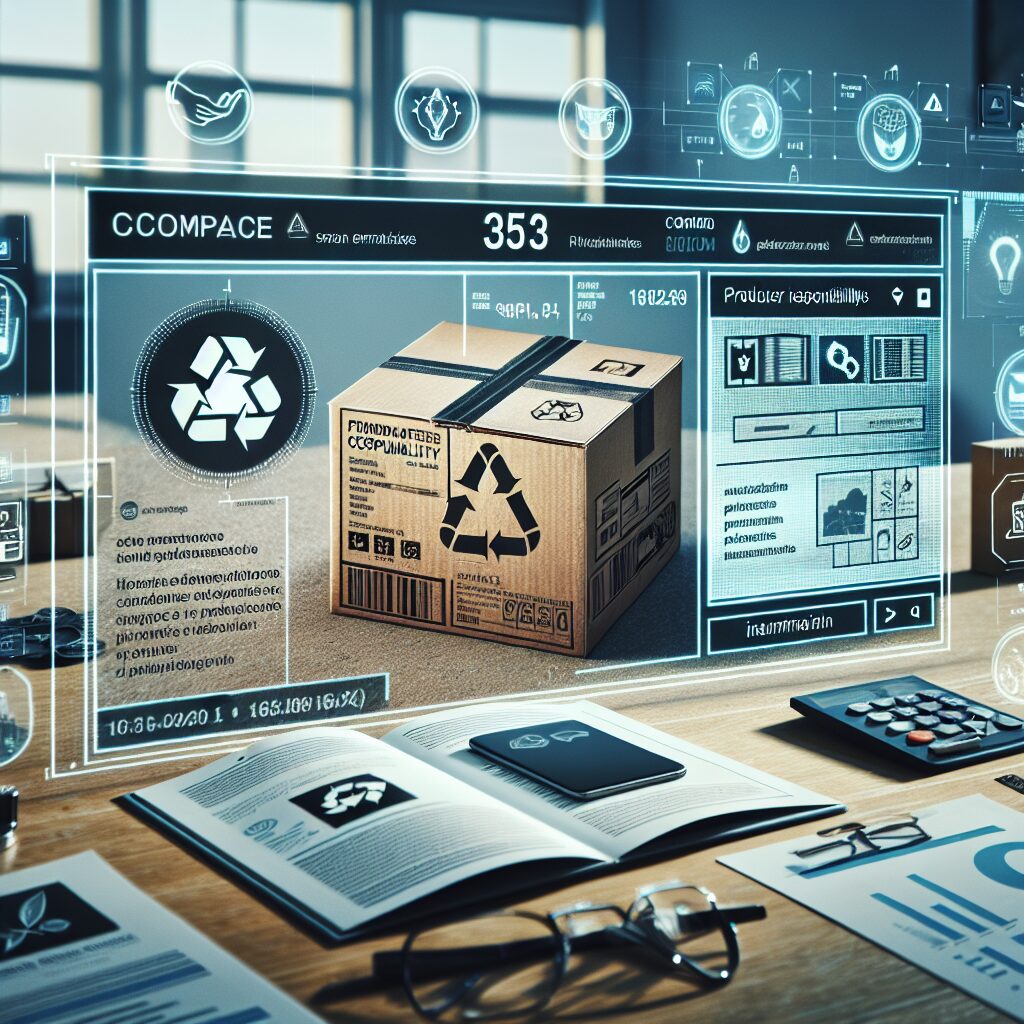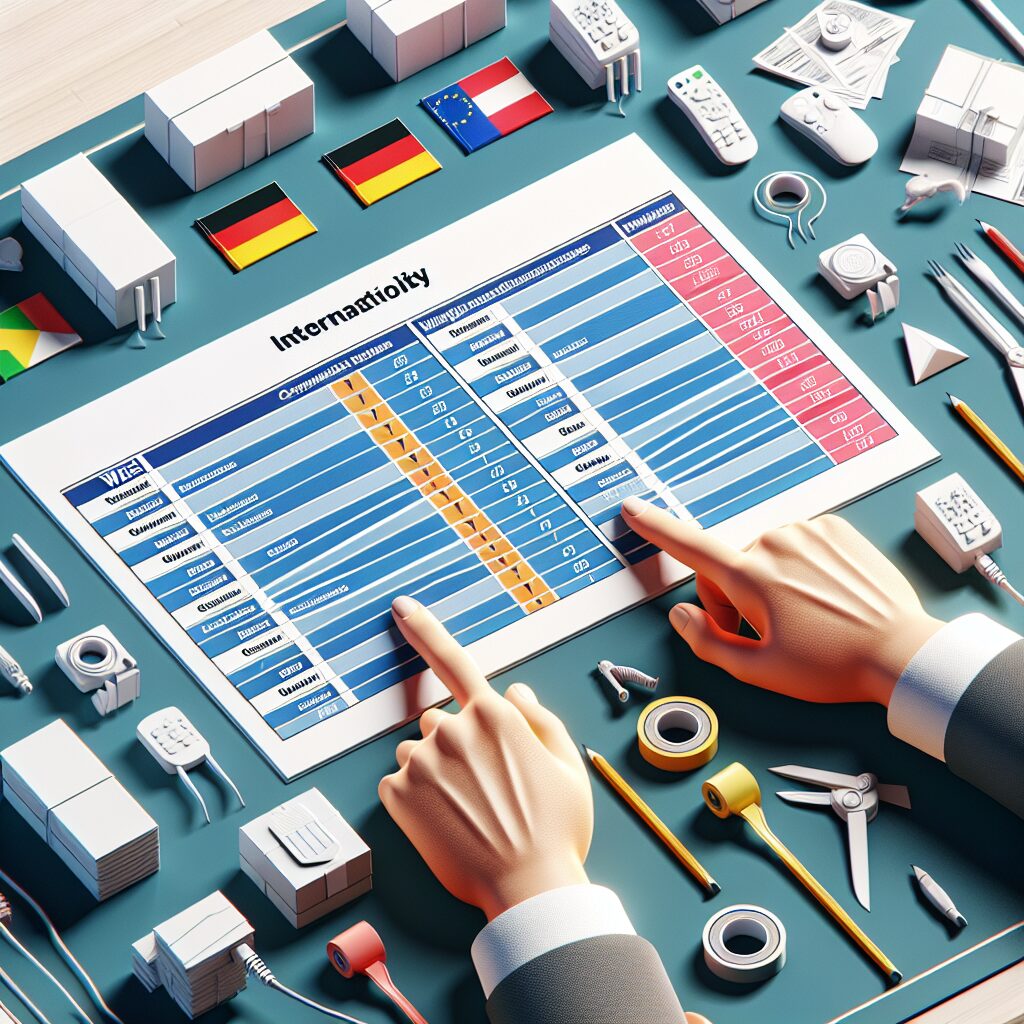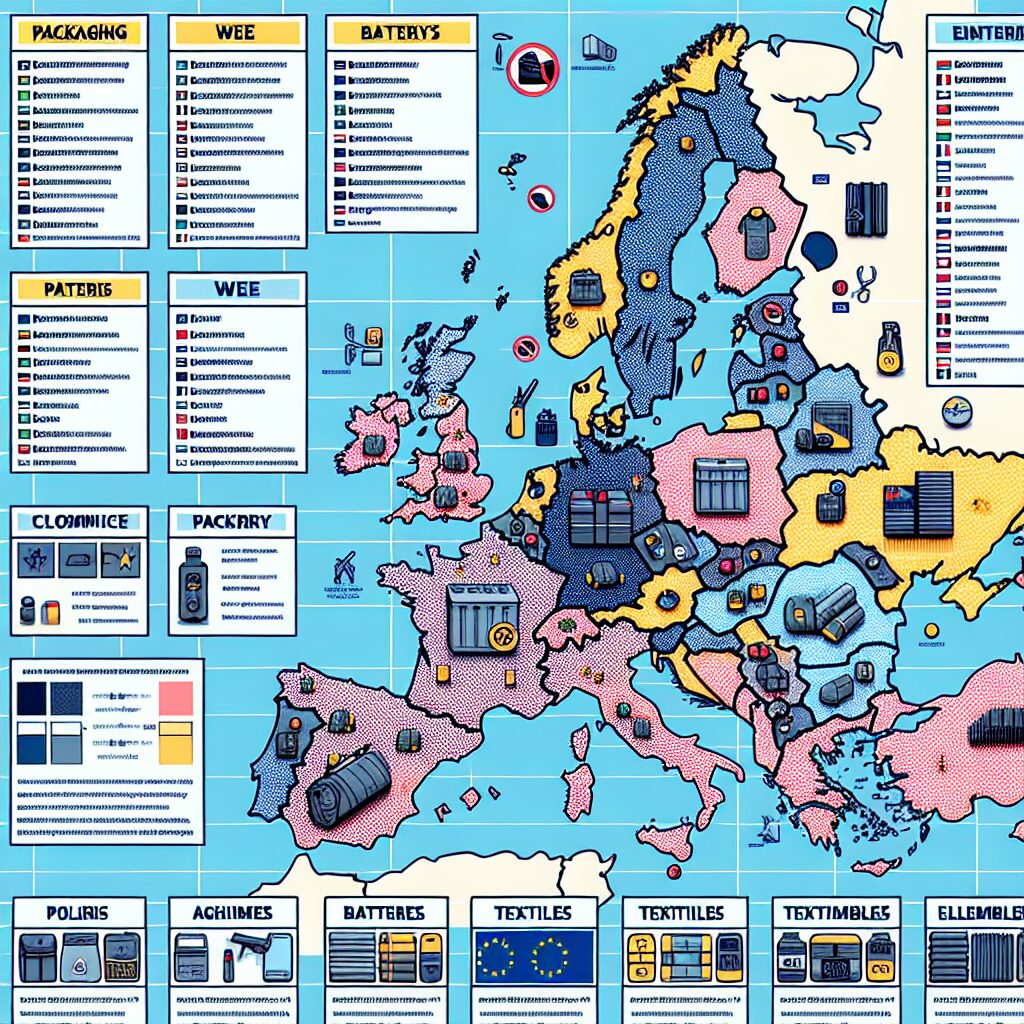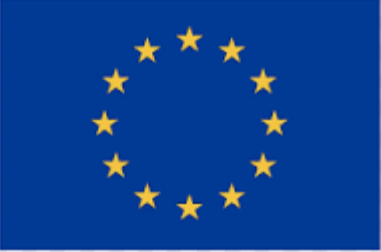About eldris
Epr.eldris.ai leads the EPR sector, in fast, automated, AI Agent EU Complaince. LUCID Packaging, WEEE, and Battery Compliance for Brands, E-Commerce and Service based businesses expanding into the EU.
In This Article
- Register with the correct PRO(s) and obtain your Identifiant Unique immediately
- Ensure Triman and Info-Tri labels are applied correctly and visibly on all products
- Stay ahead of evolving laws by monitoring updates and integrating automation tools
- Maintain full documentation to remain compliant and marketplace-eligible
- Leverage SaaS solutions to manage reporting, fees, and label generation at scale
What is France EPR and Why It Matters
A regulatory foundation for producers in the French market
France EPR compliance is a legal requirement for producers and distributors selling certain categories of products within the French market. The “Extended Producer Responsibility” (EPR) framework shifts the responsibility for managing the post-consumer waste of products from the consumer to the producer. In other words, companies that manufacture, import, or sell eligible goods in France must finance or manage the collection, sorting, and recycling of the resulting waste.
This regulation is essential in tackling environmental issues linked to waste, driving increased recycling and reducing environmental impact. EPR obligations in France apply across more than thirty waste streams, including packaging, electrical and electronic equipment (EEE), batteries, clothing, furniture, toys, and more.
EPR in France is governed primarily by the Environmental Code, reinforced by the Anti-Waste for a Circular Economy Law (AGEC) passed in February 2020. This law introduced sweeping reforms to EPR, including stricter labelling requirements and expanded oversight mechanisms. Failure to comply can result in significant fines and exclusion from digital marketplaces.

Understanding the Triman Logo
Its purpose, format, and visibility guidelines
The Triman logo is an essential visual marker under France EPR compliance obligations. Its primary purpose is to alert consumers that a product is separable and recyclable, and that sorting instructions are available (in the form of Info-Tri). It is mandatory for many product types, including packaging, textiles, batteries, and small appliances covered under the French waste stream categories.
The logo must be clearly visible on the product, its packaging, or accompanying documentation. Producers are responsible for ensuring proper localisation—this means that if a product is sold in the French territory, the Triman logo must be printed in accordance with French guidelines, even if it is already sold elsewhere in the EU.
Triman’s format includes a silhouetted figure, recycling triangle, and a bin emoji, and may appear with or without text depending on the product category. It serves not only a legal function but a practical educational one, enhancing consumer awareness and encouraging environmentally responsible behaviours. Omitting the Triman logo where it is mandated can result in enforcement actions by the French authorities.
Info-Tri: Sorting Instructions for Consumers
How to design and display Info-Tri based on product type
Info-Tri refers to a set of consumer-facing graphic instructions that indicate how to sort and dispose of a product at end of life. These symbols complement the Triman logo and provide clarity to the end-user. Info-Tri designs vary depending on the product category and must align closely with guidelines released by accredited French Producer Responsibility Organisations (PROs).
For example, packaging materials may use symbols showing separation of cardboard and plastics or specify drop-off locations. Electronic devices may carry Info-Tri indicating return to collection points. Each of these symbols helps reduce waste contamination, which is a cornerstone of France EPR compliance strategy.
Each PRO, such as CITEO for packaging or ECOLOGIC for electronics, offers detailed visual guidance. Producers must consult the relevant PRO depending on their waste stream. Importantly, graphics must be sized in proportion to the packaging or product and must be placed in an unobstructed, visible area. Misapplication or omission of Info-Tri may be subject to audit and penalties.
Acquiring and Using the Unique Producer ID (Identifiant Unique)
Steps to legally register for EPR in France
Every producer or importer wishing to sell EPR-regulated products in France must obtain an Identifiant Unique—this Unique Producer ID serves as proof of registration with one or more accredited PROs. It is issued by the French Agency for Ecological Transition, known as ADEME (Agence de la Transition Écologique).
To obtain this ID, companies must sign up with the relevant PRO for their waste stream. For instance, a company selling batteries would register with COREPILE, while textile producers may register with Refashion. Upon joining, the PRO transmits registration data to ADEME, which generates an Identifiant Unique for each waste stream.
This ID must be renewed annually and included in financial statements, website legal notices, and, where applicable, marketplace listings. Lack of a valid ID can lead to delisting from ecommerce giants and may trigger regulatory penalties. Maintaining an up-to-date Unique Producer ID is one of the most basic but vital steps for France EPR compliance.
Deadlines and Phase-Ins by Waste Stream
When does compliance become mandatory for your product
Different product categories became subject to France EPR rules at different times, and new streams are added every year. For producers, understanding these deadlines is critical to ensuring continuous compliance.
For example, packaging compliance became mandatory as of 1 January 2022. Textiles, footwear, and household linen also saw strengthened EPR rules that year, with updated Info-Tri obligations valid from 1 February 2023. Electrical and electronic goods have been under EPR provisions since as early as 2006, but saw updated Triman and sorting label deadlines in late 2021.
In 2024, two new waste streams have entered the frame: DIY gardening products and sports & leisure equipment. Producers operating in these spaces must join the appropriate PROs and ensure full compliance by 1 January 2024. Going forward, further regulations are expected to affect digital equipment, toy packaging, and other niche categories.
Common Pitfalls and How to Stay Compliant
Avoiding fines, maintaining marketplace eligibility
Despite best intentions, companies often overlook critical areas of France EPR compliance. One recurring issue is failure to apply or correctly format the Triman logo and Info-Tri instructions. Some businesses erroneously assume pan-European reporting suffices; others neglect to update their design files to show the correct graphics for the French market.
Another common mistake involves failing to register with all relevant PROs. Businesses with multi-category products—like electronics sold in retail packaging—need to register under both electronics and packaging PROs. Failing to do so can create audit risk.
To mitigate these risks, work with compliance service providers or consultants familiar with Learn more about EU producer responsibility and packaging compliance and French environmental law. Additionally, producers are strongly advised to maintain documented proof of PRO registrations, annual declarations, and communication history with ADEME. The key to avoiding penalties and staying sale-ready is proactive, thorough management of these obligations.
France EPR & Marketplaces: How They Enforce Compliance
Amazon, eBay, Cdiscount updates for sellers
Digital marketplaces have significantly tightened enforcement of France EPR compliance. Amazon, for instance, now requires sellers to input their Identifiant Unique within their seller accounts. Similarly, eBay and Cdiscount have escalated their due diligence, warning of delisting or account suspension for non-compliant merchants.
These platforms coordinate directly with ADEME by performing batch verifications. Sellers unable to produce a valid ID risk being locked out of the French market indefinitely. For fulfilment services, marketplaces may pass on eco-contributions to the producer or refuse placements in French warehouses altogether.
Ensuring correct EPR documentation is not just about regulation; it’s also a competitive advantage. Compliant sellers enjoy continued marketplace access and consumer trust. Many marketplaces now offer EPR compliance services or integrations within their platforms, reducing friction and enabling ease of management. nonetheless, proactive engagement remains critical.
Triman and Info-Tri FAQs for International Sellers
Answering top questions from global brands
Q1: Is France EPR compliance required if I only sell via marketplaces?
Yes. Even if you use Amazon or Cdiscount FBA, the legal responsibility falls on the producer. Registration with appropriate PRO(s) and obtaining an Identifiant Unique is mandatory regardless of sales channel.
Q2: Can I use the recycling logo required in Germany instead of Triman?
No. Triman and Info-Tri are unique to France and must be used accordingly. Non-substitution is one of the foundational principles of France EPR compliance.
Q3: I am a small brand. Do thresholds exist for EPR compliance?
For packaging only, French law includes de minimis exemptions for very low-volume producers. However, for most other streams, all producers must register. It’s advisable to consult your PRO or legal counsel for exemption thresholds.
Q4: Are penalties enforced against foreign companies?
Yes. French authorities may work with customs or marketplaces to bar imports or listings. In addition, fines up to €15,000 can apply for each instance of non-compliance.
France EPR Changes in 2024 and Beyond
Regulatory trends and future-proofing your compliance
The scope of France EPR compliance continues to expand with each passing year. In 2024, in addition to new waste streams like leisure and sports gear, the French government is also piloting data standardisation measures. These measures aim to streamline eco-contributions and harmonise registration across multiple EPR schemes.
More automation is expected in data exchange between PROs and ADEME, making it easier for regulators to identify lags in compliance. Legislation is also being discussed to require on-pack disclosure of eco-participation fees, similar to what is being enacted in other EU Member States.
With the EU’s Packaging and Packaging Waste Regulation (PPWR) under simultaneous development, producers selling across Europe will likely see more integration challenges. Future-proofing your France EPR compliance now—by leveraging scalable tools and process automation—will save cost and reduce compliance debt in the long term.
Tools and Automation to Streamline EPR Compliance
How SaaS platforms enable scale with accuracy
Managing France EPR compliance across multiple product types and distributions can quickly scale into a complex operation. This is why modern tools and SaaS platforms have emerged to help businesses automate their obligations effectively.
Platforms such as Environmental compliance with France’s Triman rules and EU Responsible Person rules for online sellers offer features like multi-waste-stream registration, automated eco-contribution calculations, and on-pack labelling generation that adheres to Triman and Info-Tri guidelines. These tools allow companies to keep compliance tasks integrated with ERP systems and reduce manual errors.
Moreover, marketplaces such as Amazon have started integrating EPR document requests into seller dashboards. Scalable software solutions ensure brands don’t miss vital deadlines, and can help prevent last-minute rushes that compromise quality. For brands operating in multiple EU markets, these tools offer unmatched value, turning regulatory complexity into manageable workflows with audit trails and robust documentation storage.
“France EPR compliance isn’t just a formality—it’s a lever for market entry, environmental stewardship, and competitive advantage.”
Key Takeaways and Next Steps
France EPR compliance is a multifaceted legal requirement every producer must address when selling into the French market. From registering with an accredited PRO to properly displaying the Triman logo and Info-Tri guidance, companies bear responsibility beyond manufacturing. Proper labelling, documentation, and automation are the backbones of long-term compliance. With the right strategy, partners, and systems, businesses can confidently meet their legal obligations while contributing to the circular economy.
Great guide on france-epr-compliance-triman-info-tri-unique-id-guide – Community Feedback
Who must comply with Triman and Info-Tri label rules in France?
Any producer, importer, or marketplace seller placing packaging, textiles, batteries, WEEE, or household products on the French market must use the Triman logo and Info-Tri instructions as per latest EPR regulations.
What does the French Unique Producer Identification Number mean?
The Unique Producer Identification Number (Identifiant Unique) is a legally required registration code, confirming a producer’s EPR registration for each product waste stream in France, needed for compliance and marketplace listings.
When are Triman and Info-Tri labelling deadlines in France?
As of 2023, Triman and Info-Tri are mandatory for most consumer products and packaging in France. Deadlines may differ by product stream, but failing to comply can result in delisting or fines.










